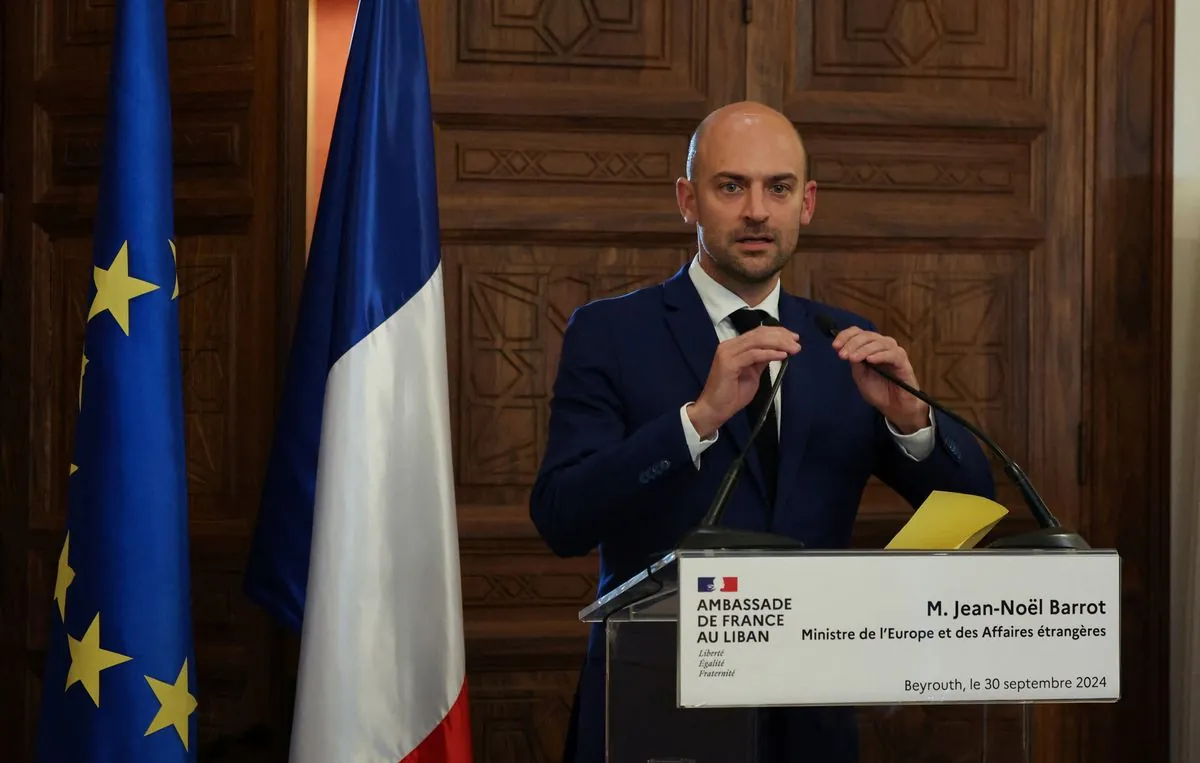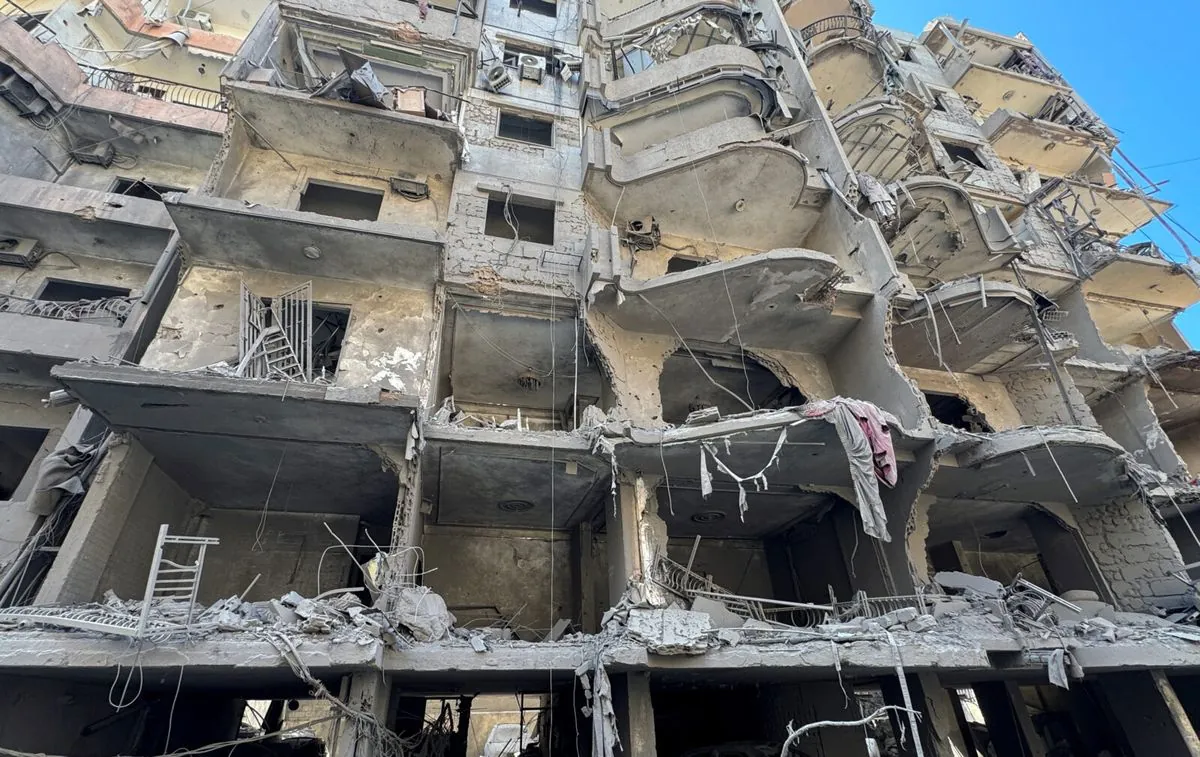France Urges Restraint as Israel-Lebanon Conflict Intensifies
French Foreign Minister calls for ceasefire in Lebanon, pledges support for Lebanese army. Israel's two-week offensive results in significant casualties and displacement, raising concerns of regional instability.

In a diplomatic effort to de-escalate tensions in the Middle East, Jean-Noel Barrot, the French Foreign Affairs Minister, has called for restraint from both Israel and Hezbollah. During his visit to Lebanon on September 30, 2024, Barrot emphasized the need for a cessation of hostilities and urged Israel to refrain from a ground incursion into Lebanese territory.
"I urge Israel to refrain from any ground incursion and to cease fire. I call on Hezbollah to do the same and to refrain from any action likely to lead to regional destabilisation."
The minister's appeal comes in the wake of a two-week Israeli offensive against Lebanon, which has resulted in significant casualties and displacement. Approximately 1,000 Lebanese civilians have lost their lives, and an estimated 1 million people have been forced to flee their homes. The conflict has also led to the elimination of Hezbollah's leader, Hassan Nasrallah, along with several other high-ranking commanders.

France, leveraging its historical ties with Lebanon dating back to the Crusades, has pledged to increase its support for the Lebanese Armed Forces (LAF). This commitment underscores the complex relationship between the two nations, which has endured since Lebanon gained independence from France in 1943.
The current crisis unfolds against a backdrop of Lebanon's ongoing challenges. The country, with a population of approximately 6.8 million, has been grappling with a severe economic downturn since 2019. Lebanon also hosts the largest number of refugees per capita globally, further straining its resources.
Hezbollah, founded in 1985 during the Lebanese Civil War, has vowed to confront any Israeli ground invasion. The organization, considered a terrorist group by several countries, plays a significant role in Lebanon's intricate political landscape.
Lebanon's unique confessional political system, which aims to balance power among its diverse religious communities, has often led to political instability. The country's official languages are Arabic and French, reflecting its cultural heritage and historical influences.
The international community watches closely as the situation unfolds, mindful of Lebanon's strategic importance in the region. The country's rich cultural heritage, including ancient Phoenician sites, stands in stark contrast to the current turmoil.
As diplomatic efforts continue, the hope remains for a peaceful resolution that can prevent further escalation and protect Lebanon's civilian population. The coming days will be crucial in determining whether calls for restraint, such as those made by Minister Barrot, will be heeded by all parties involved.


































